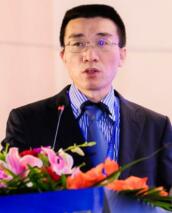Prof. Xichun Luo, University of Strathclyde, UK

Title
Bioinspired surface with superhydrophobicity: design, fabrication and characterization
Abstract
Natural biological surfaces, such as lotus leaf, rice leaf, fish scale and butterfly wings have attracted so much attention due to their superhydrophobicity that formed during long-time evolution and natural selection. Inspired by the natural surface, artificial superhydrophobic surfaces have attracted extensive attention over the last few decades. It is mainly due to their capabilities of providing several interesting functions such as self-cleaning, corrosion resistance, anti-icing and drag reduction. Nanosecond pulsed laser ablation is considered as a promising technique to fabricate superhydrophobic surfaces. In this presentation, a systematic research of laser ablated superhydrophobic surface on stainless steel was presented, which include the pattern design approach, simulation of hydrophobicity, product and process fingerprint, and characterization of superhydrophobicity of specimen.
Biography
Xichun Luo is a Professor in ultra precision manufacturing and technical director of Centre for Precision Manufacturing (CPM) at the University of Strathclyde (Glasgow). He is a Fellow of the International Society for Nanomanufacturing and an editor for Proceeding of IMechE Part C: Journal of Mechanical Engineering Science, Journal of Micromanufacturing, Advances in Mechanical Engineering and Mechanical Sciences. He also sits in the editorial board for Micromachines, Nanomanufacturing and Metrology. His research has been founded by the EPSRC, EC, Royal Society and Industry. His research interests include ultra precision machining brittle materials, freeform machining, precision motion control, hybrid micromachining and FIB nanomanufacturing, as evidenced by two books and more than 100 papers in peer-reviewed highly ranked journals. He chaired two IEEE International Conferences in Automation and Computing in 2014 and 2015. He won UK Institution of Mechanical Engineers (IMechE) 2015 Ludwig Mond Prize for his work in the application of digital technology in micro- and nano-manufacturing.